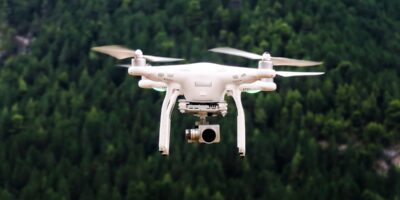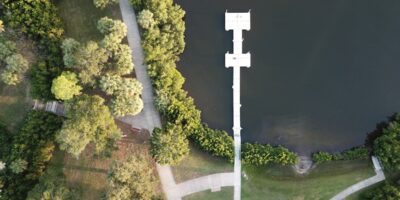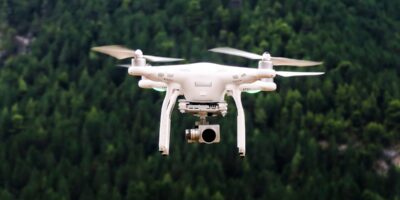
Understanding the Role of a UAS Nurse
Within the healthcare sector, various roles contribute to the effective delivery of services. A UAS nurse is one of these vital positions. Briefly, UAS stands for Uniform Assessment System. This system is essentially a tool used to evaluate individuals’ needs for specific healthcare and support services.
Introduction to the Uniform Assessment System
The UAS is a comprehensive evaluation system used primarily in the state of New York. Its primary function is to assess the requirements of individuals receiving Medicaid-funded home and community-based services. The goal is to ensure that individuals receive the appropriate level of care and services. The UAS tool captures a wide range of information. It looks at physical health, mental well-being, and social circumstances. This multidimensional approach is what distinguishes it from other assessment tools.
The Role of a UAS Nurse
A UAS nurse plays a crucial role in conducting these assessments. They are responsible for gathering information through various methods, including direct observation and interviews. These nurses visit individuals in their homes or community settings to perform the assessment. Part of their job involves establishing trusting relationships with the individuals they examine.
During an assessment, a UAS nurse evaluates different aspects of an individual’s life. They assess physical health, including any chronic conditions. They explore the individual’s mental and emotional state. They evaluate the person’s ability to perform daily activities and their level of social interaction.
Skills and Competencies
- Strong interpersonal skills are crucial for building rapport with clients.
- Assessment skills are central to obtaining accurate and comprehensive data.
- Analytical skills are necessary to interpret data and make informed recommendations.
- Communication skills are essential for clear documentation and effective reporting.
- Organizational skills are required to manage different cases and follow-up actions.
Assessment Process
The assessment begins with scheduling a meeting with the individual in the most comfortable setting possible. UAS nurses use a structured interview format to collect data. They follow a standardized form provided by the Uniform Assessment System. Questions cover a plethora of areas including physical health, mental health, and social supports.
Nurses also observe the individual’s living conditions. They document any concerns regarding safety, mobility, or accessibility. After gathering data, the UAS nurse uses specialized software to input information. The data collected assists in determining the required level of care and services.
Tools and Technologies
Most UAS nurses use laptops or tablets to facilitate data collection and entry. The software used is specifically designed to align with the Uniform Assessment System protocols. It ensures accuracy and consistency. Many systems have built-in analytical tools that help nurses make informed decisions based on the data gathered.
Documentation and Reporting
Accurate documentation is a crucial part of the UAS nurse’s responsibilities. They must ensure that all data is correctly input into the system. The reports generated from these assessments help inform care plans. They also help in eligibility determinations for Medicaid-funded services. Thorough documentation ensures continuity of care and supports providers in creating effective interventions.
Collaboration is Key
UAS nurses often collaborate with other healthcare professionals. Teamwork is important in developing comprehensive care plans. They engage with physicians, social workers, and other service providers to align services according to the assessment results. Coordination helps in ensuring that all aspects of an individual’s needs are addressed.
Not Just a Number
The job of a UAS nurse goes beyond paperwork. They play a part in improving the quality of life for individuals. Through their assessments, they help identify the right resources and support systems for each person. They take into account the holistic needs of the individual, not just the medical ones.
Career Path for a UAS Nurse
Becoming a UAS nurse typically requires a valid nursing license. Most nurses in this role are registered nurses (RNs). Experience in community health or long-term care is often preferred. Familiarity with Medicaid processes and state-specific health services is a plus.
UAS nurses need ongoing training. Changes in healthcare regulations and updates in the UAS system require continuous learning. Nurses interested in this field should be proactive about professional development opportunities.
Challenges in the Role
Like any healthcare role, being a UAS nurse comes with its challenges. They often deal with complex cases. Many individuals assessed have multiple chronic conditions or significant social needs. Navigating the healthcare system to link individuals to the proper services can be daunting.
Emotional resilience is another crucial factor. UAS nurses often work with individuals in difficult situations. They need to balance empathy with professionalism. Developing coping strategies is important for long-term success in the role.
Impact on Quality of Care
The work of UAS nurses impacts the delivery of quality care. By providing thorough assessments, they help tailor healthcare services to individual needs. This customization improves outcomes and increases patient satisfaction. It’s a role that demands accuracy, empathy, and above all, a dedication to improving lives.
Ultimately, UAS nurses help bridge the gap between individuals and the healthcare services they need. They ensure access to personalized and appropriate care. Their assessments guide healthcare providers in delivering targeted interventions. The end result is a healthcare system that responds more effectively to the needs of its population.
Recommended Drone Gear
ASA Remote Pilot Test Prep – $19.95
Complete prep for the FAA Part 107 exam.
Drone Pilot Log Book – $7.99
Track your flights and maintain compliance.
As an Amazon Associate, we earn from qualifying purchases.



